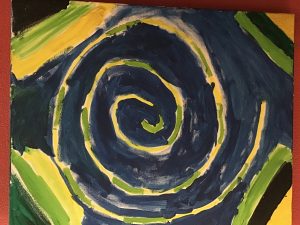
In Traditional Chinese Medicine, we treat diseases using energy channels or meridians. When considering the health of a person, Qi can be translated as energy of the body. Qi is considered to be a life-supporting substance of the body and, at the same time, the motive force of the functions of organs, tissues, and systems of the body.
Before receiving acupuncture, the client would choose the most prominent symptom of the day, for example, insomnia. The acupuncturist would choose a combination of points that would focus on that symptom, as well as points to achieve balance throughout the body.
Once a needle is inserted, the client will feel a distention, ache, or numbness at the point. This is the Qi sensation. The client may also feel a warmth or electric shock going out from the point. Occasionally, the client may feel a little pain at certain points, but it will disperse quickly. Qi carries the effect of acupuncture from one area of the body to another. The meridian or channel guides Qi along its path.
Two basic types of Qi in the body are congenital and acquired. People are born with congenital Qi, so it is basically limited. It makes up a person’s basic constitution. Acquired Qi comes from food intake and breathing. The quality of acquired Qi depends on food quality, air quality, water quality, emotional balance, and physical maintenance.
Qi has four basic types of imbalance in the body. They are Qi deficiency, Qi sinking, Qi stagnation, and Qi rebellious. These states are all addressed with the unique diagnoses and treatments in Traditional Chinese Medicine.
